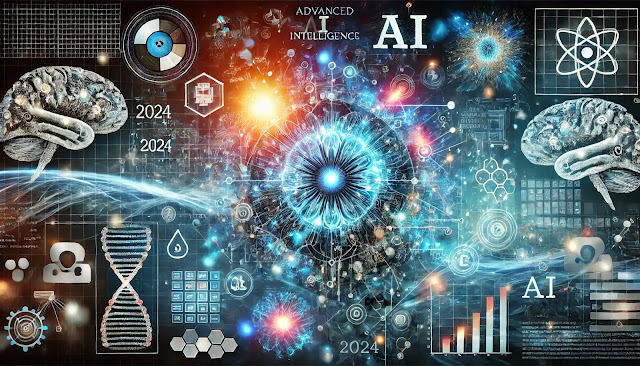Data Analytics in Entertainment: Changing the Way We Consume Content
In an era where algorithms know us better than our closest friends, data analytics has revolutionized the entertainment industry. Gone are the days when TV schedules dictated our viewing habits or radio playlists decided our music preferences. Today, data-driven decisions are shaping the way we consume content, making entertainment more personalized, engaging, and immersive.
The Rise of Data Analytics in Entertainment
Data analytics isn't just a buzzword; it's the backbone of modern entertainment. From streaming services to social media platforms, data is being mined, analyzed, and utilized to enhance user experiences. Here's how:
- Personalized Recommendations: Ever wondered how Netflix always seems to know what you want to watch next? That's data analytics at work. By analyzing your viewing history, preferences, and even the time you spend on different genres, streaming platforms can curate personalized recommendations that keep you hooked.
- Content Creation: Data analytics isn't just about consumption; it's also transforming content creation. Studios and production houses are using data to understand audience preferences, predict trends, and even decide on plotlines. Remember "House of Cards"? It was greenlit by Netflix based on data insights that showed a high demand for political dramas.
- Marketing Strategies: Gone are the days of one-size-fits-all marketing campaigns. With data analytics, entertainment companies can segment their audience and tailor marketing strategies to target specific demographics. This not only increases engagement but also ensures a higher return on investment.
Case Studies: Data Analytics in Action
Let's dive into some real-world examples of how data analytics is changing the entertainment landscape.
Netflix: The King of Data-Driven Decisions
Netflix is arguably the poster child for data analytics in entertainment. With over 200 million subscribers worldwide, the streaming giant has a treasure trove of data at its disposal. Here's how Netflix uses data:
- Content Recommendations: Netflix's recommendation engine is a marvel of data science. By analyzing viewing patterns, search queries, and even pause/rewind behavior, Netflix can predict what you'll want to watch next with uncanny accuracy.
- Original Content: When Netflix decided to produce "House of Cards," it wasn't a gamble. The decision was backed by data insights that showed a high demand for political dramas and a strong following for Kevin Spacey and director David Fincher.
- User Engagement: Netflix constantly experiments with different thumbnails for its shows and movies. By analyzing which images attract more clicks, Netflix can optimize its user interface to enhance engagement.
Spotify: Tune In to Data
Spotify is another prime example of how data analytics can transform an industry. With millions of users streaming billions of songs, Spotify has a wealth of data to draw from. Here's how Spotify leverages data:
- Personalized Playlists: Spotify's "Discover Weekly" playlist is a fan favorite. By analyzing your listening history and comparing it with users who have similar tastes, Spotify can curate a playlist that's uniquely yours.
- Artist Insights: Spotify for Artists provides musicians with detailed analytics about their listeners. From demographic breakdowns to geographic locations, artists can use this data to plan tours, release new music, and engage with their fans.
- Ad Targeting: Spotify's free tier is ad-supported, and data analytics plays a crucial role in targeting these ads. By analyzing user behavior and preferences, Spotify can serve ads that are more relevant and less intrusive.
The Future of Data Analytics in Entertainment
As technology continues to evolve, so too will the role of data analytics in entertainment. Here are some trends to watch out for:
- Artificial Intelligence (AI): AI is set to take data analytics to new heights. From predictive modeling to content creation, AI will enable even more personalized and immersive experiences.
- Virtual Reality (VR) and Augmented Reality (AR): As VR and AR become more mainstream, data analytics will play a crucial role in creating interactive and engaging experiences. Imagine a VR concert where the setlist is dynamically generated based on audience preferences!
- Blockchain: While often associated with cryptocurrencies, blockchain has potential applications in entertainment as well. For instance, it could be used to ensure transparency in royalty payments or to create decentralized content distribution platforms.
Challenges and Ethical Considerations
While the benefits of data analytics in entertainment are undeniable, there are also challenges and ethical considerations to keep in mind:
- Privacy Concerns: With great power comes great responsibility. Entertainment companies must ensure that they handle user data responsibly and transparently. Privacy breaches can erode trust and result in legal repercussions.
- Bias in Algorithms: Algorithms are only as good as the data they're trained on. If the data is biased, the recommendations and insights generated by the algorithms will be biased too. It's crucial to ensure diversity and inclusivity in data sets.
- Over-Reliance on Data: While data is a powerful tool, it's not infallible. Over-reliance on data-driven decisions can stifle creativity and result in formulaic content. It's important to strike a balance between data insights and creative intuition.
Conclusion
Data analytics has undeniably transformed the entertainment industry, making content consumption more personalized and engaging than ever before. From Netflix's recommendation engine to Spotify's personalized playlists, data-driven decisions are shaping our entertainment experiences in ways we couldn't have imagined just a few years ago.
As technology continues to evolve, the role of data analytics in entertainment will only grow. However, it's crucial to navigate this landscape with an eye toward ethical considerations and privacy concerns.
So next time you're binge-watching your favorite show or discovering new music, take a moment to appreciate the data-driven magic happening behind the scenes.





Comments